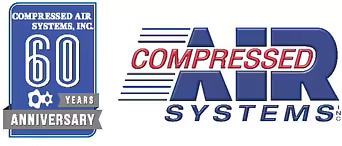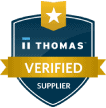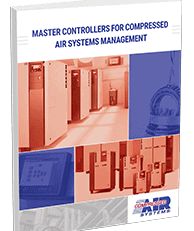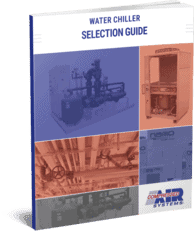Saving Cost with Air Compressor Oils & Air Compressor Lubricants
Air compressors are mechanical devices that convert kinetic power from an engine (electric, diesel or gasoline) and store it as potential energy in a tank as compressed or pressurized air.

This compressed air can be tapped and used as kinetic energy as it is released on command in quick or sustained bursts. This source of energy is the heart of the systems transporting energy around modern machine shops.
Air compressors are used in a wide range of environments—from small shops and garages to major manufacturing plants. It is becoming even more common to find them in home basements and garages. Models are available for every job, from inflating bicycle tires to powering nail guns, impact wrenches and spray guns.
The big advantage of air power is that each tool no longer needs to create and store its own power. Each tool can now tap into the power from a monolithic source, making for an easy to use, light and compact system with fewer parts to wear out over time. These systems are less costly, more reliable, and more efficient than maintaining individual sources.
There are numerous methods for compressing air; they are divided into positive-displacement and negative-displacement processes.
The most common are positive-displacement compressors. These compressors force air into a chamber which decreases the volume of the chamber, compressing the air and forcing it into a storage reservoir through one-way valves. Piston-type air compressors are a common positive-displacement system, pumping air into an air chamber through the use of the constant motion of pistons.
A negative displacement compressor uses a hydraulic system to push the air into the container. The increased speed formed by the hydraulic propellers is what causes the increase in air pressure. Centrifugal compressors are a typical type of negative displacement compressor.
Whereas positive compressors require relief valves to protect the system from over pressurizing, a negative compressor always has a limit above which it cannot pressurize. However, this pressure limit is usually far less than what a positive displacement compressor can reach (and therefore seen by many as a disadvantage).
Negative displacement air compressors might have the disadvantage of not being able to reach the same level of pressure as a positive displacement compressor, but they are easier to operate and less expensive. It is really up to the operating situation and environment that dictates the type of compressor required.
 One of the major expenses with air compressors is in the maintenance of compressor oils or lubricants. One way to save money with air compressors is to use aftermarket oils or lubricants instead of the OEM brands.
One of the major expenses with air compressors is in the maintenance of compressor oils or lubricants. One way to save money with air compressors is to use aftermarket oils or lubricants instead of the OEM brands.
Compressor fluids, oil or synthetic lubricants keep the numerous internal parts of the compressor system safely operating at high speeds and under extreme pressures. A properly lubricated compressor helps the machine run more efficiently, keeps temperatures under control, and reduces wear and tear.
If the oil is not changed regularly (in order to save money), it will varnish up. This is due to a breakdown in additives that make it too thick to run. If this occurs, a clean run of up to 500 hours is necessary in order to clean out the compressor’s air end. Proper Oil/Lubricant replacement is required to prevent this from happening. Oil replacement is scheduled per number or run time in hours, but usually works out to about 1-2 times per year.
- Fully synthetic lubricants, 8000 hours
- Semi synthetic lubricants, 4000 hours
- Food grade lubricants, 2000 hours
It is not required (legally) for the operator of an air compressor to use the OEM specified oil or lubricant product for a compressor. However, if a compressor is being serviced under warranty, it is recommended that the OEM product be used to maintain the warranty.
When a compressor is being serviced under a warranty, the manufacturer will take an oil sample to verify the OEM oil. If the recommended oil is not being used, the warranty could become void. After the air compressor/vacuum warranty expires (1-5 years) there is no reason to use the OEM oil.
Over the remaining life of the compressor (15-20 years) a less expensive aftermarket oil can save money. These products can be 50% less expensive than the OEM products, but have the same properties.
Even though most oils are incompatible with each other in many systems, when it comes to air compressors, this is not the case. The products that air compressors use often have high cross-over compatibility with respect to OEM products.
These products are compatible whether doing a complete product changeover or simply topping off the system to maintain proper operating levels; everything is equal with respect to OEM brands. There is a great opportunity for after-market sales and crossover with major brands.
However, it’s also important to choose high quality air compressor oil to avoid unnecessary repair costs, and also to extend the life of your machinery. A product like ISEL’s synthetic lubricant is one example of aftermarket oil that is top-off compatible with OEM brands, while exceeding OEM specifications.
Compressed Air Systems, Inc. offers air compressors with the best durability, dependability, and craftsmanship; they also offer parts, accessories, and fluids such as air compressor oils like those from ISEL.
If you have a 5hp compressor for your automotive shop, a 60 gallon compressor for your home garage, or a compressor of any size, power, for any application, we have the compressor fluid to suit your machine. Compressed Air Systems has been selling and servicing air compressors since 1963, and we have the experience with a wide variety of compressor models to recommend the right compressor fluid for your needs.










